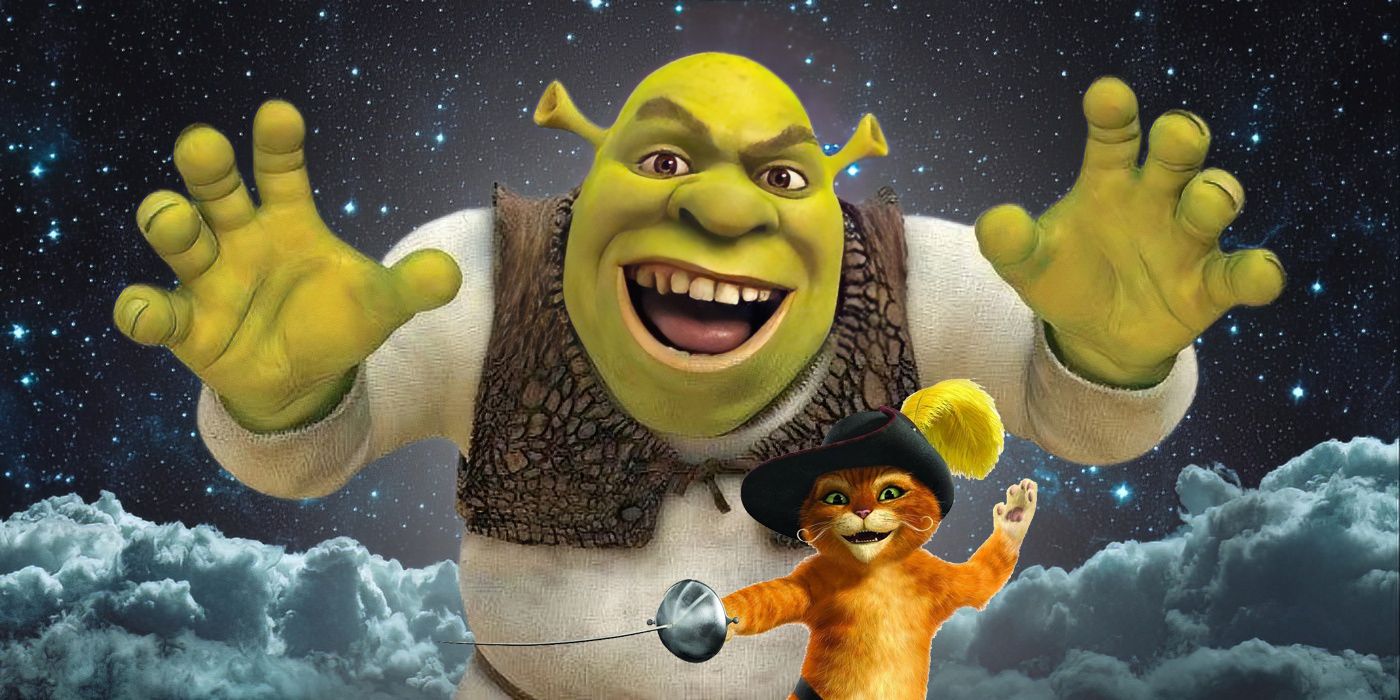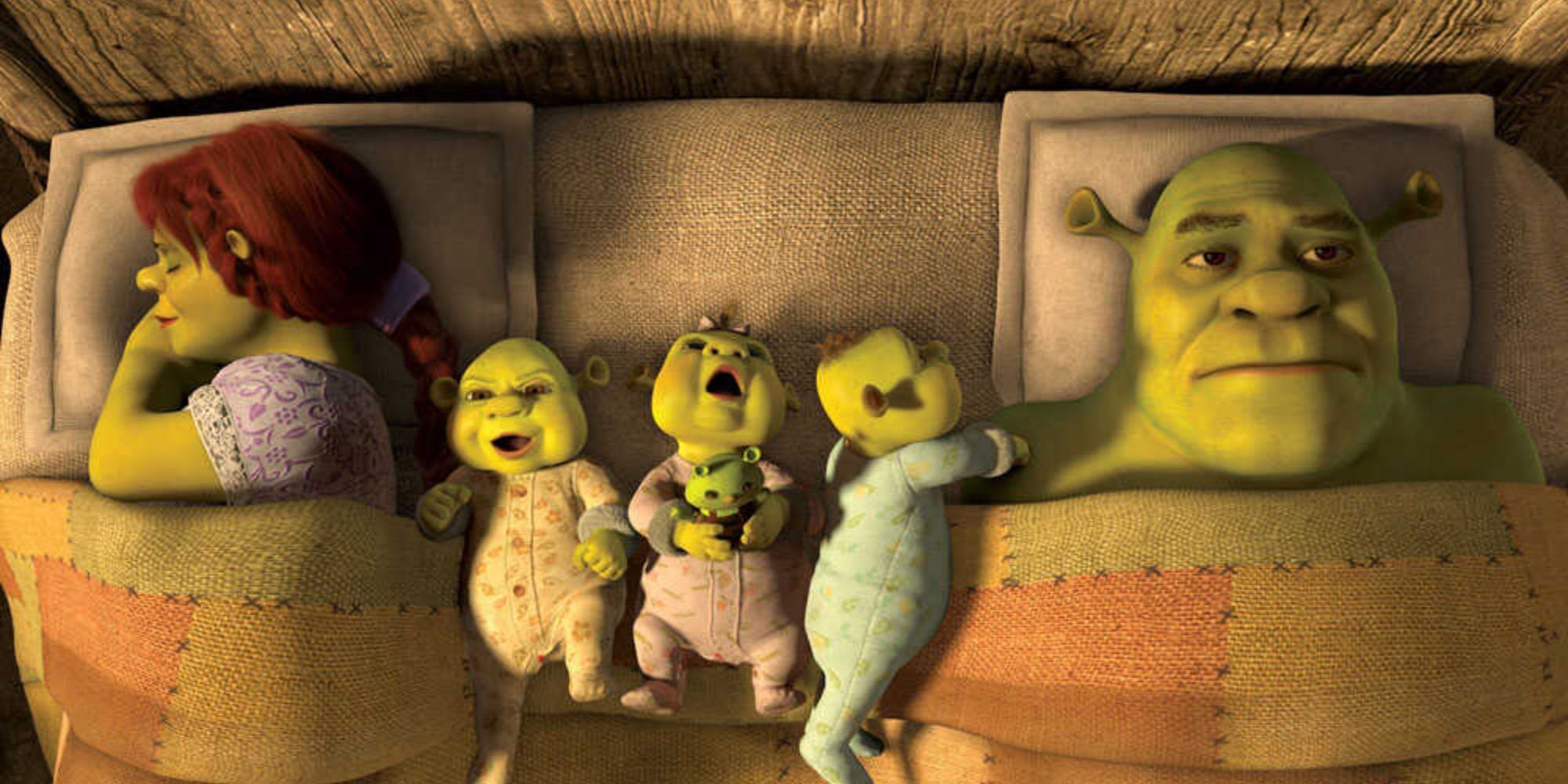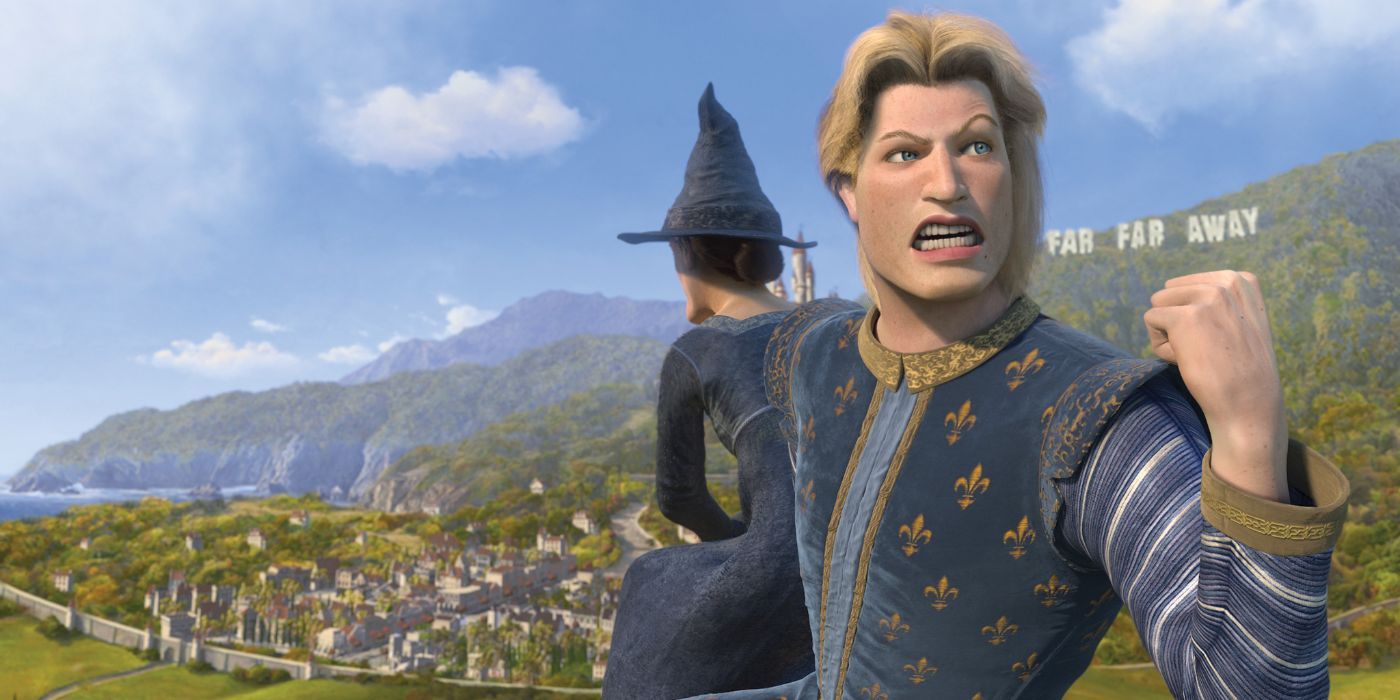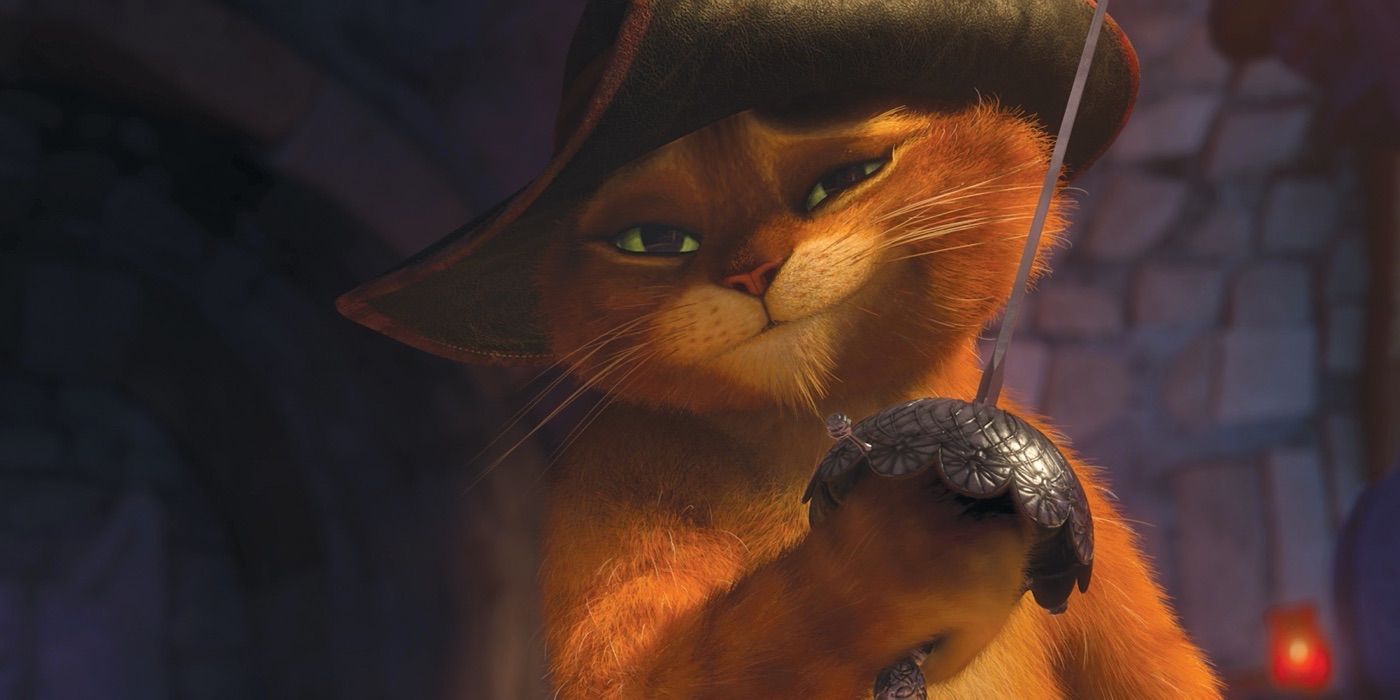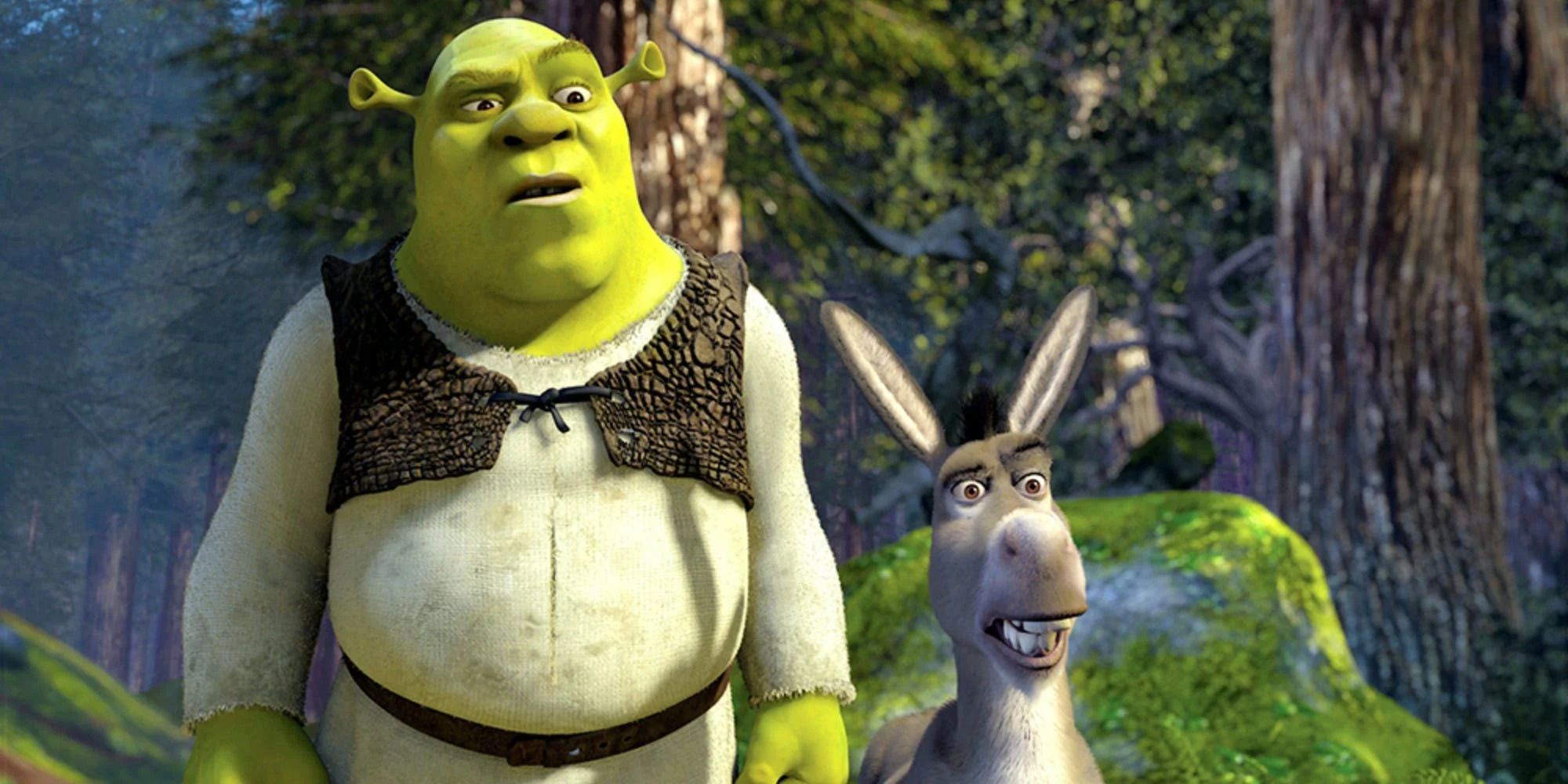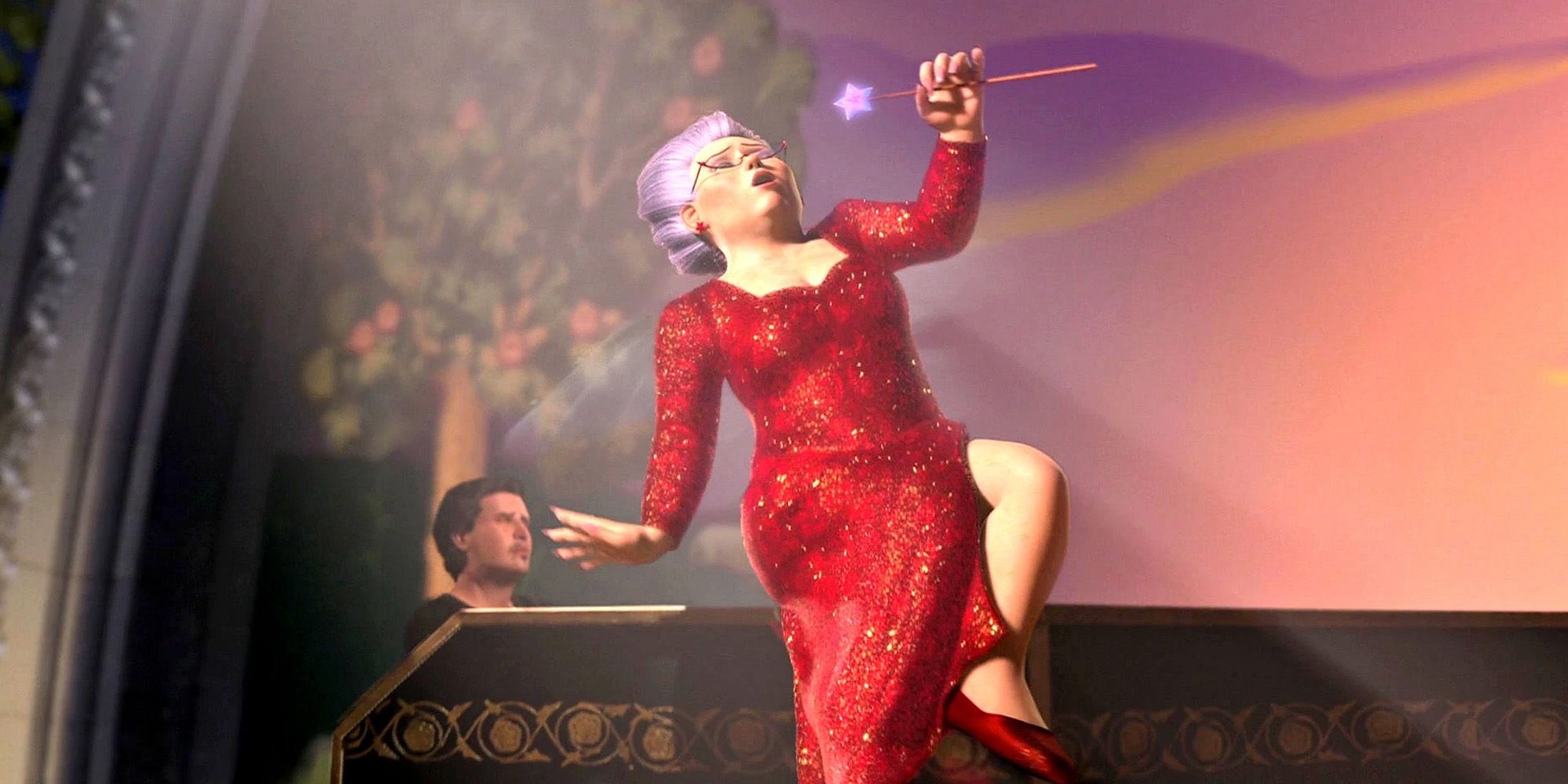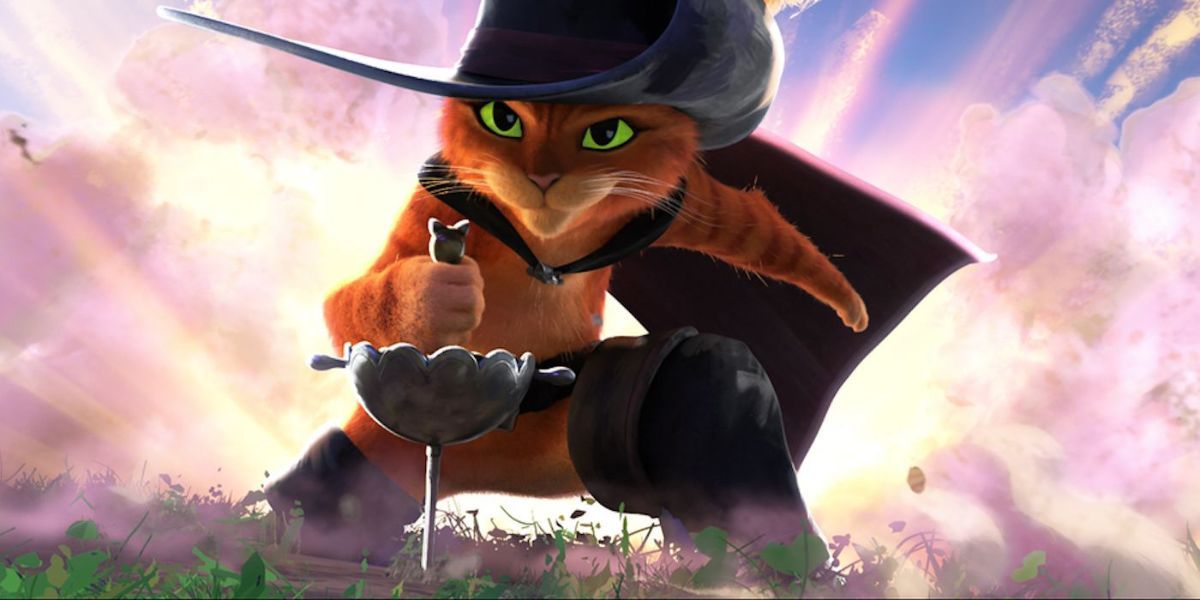It’s hard to overstate what a significant impact the Shrek franchise has had on the world of animation, for better or worse. When the first film debuted in 2001, it was seen as a sign that Pixar wasn’t the only studio that could make computer-generated films that became critically and financially successful. Although casting celebrity voices and subverting fairy story stories was something that animated films had done before, Shrek was unique in its radical approach to pop culture, featuring film references, popular music, and meta jokes. It became the first Academy Award winner for Best Animated Feature (memorably beating Monsters Inc.), and even earned a nomination for Best Adapted Screenplay.
The voiceover performances by Mike Myers and Eddie Murphy were quickly taken advantage of by DreamWorks Animation for marketing purposes, and the franchise has spawned a number of merchandising opportunities. While the reviews tended to decline with each installment, the box office for Shrek continued to be strong; it is currently the second-highest-grossing animated film series behind Despicable Me. The series launched the 2011 spinoff Puss in Boots, which brought back Antonio Banderas after he had become a staple of the franchise in Shrek 2.
With Puss in Boots: The Last Wish hitting theaters now and earning rave reviews, it appears that the future is very bright for the franchise. A third Puss in Boots is likely, and the possibility of Shrek 5 seems very high considering The Last Wish’s ending. Outside of the films, the Shrek series has included a 4-D event special, a Christmas installment, several music videos, and the Netflix television series The Adventures of Puss in Boots. Here is every Shrekiverse movie, ranked from worst to best.
6 Shrek Forever After
The fourth installment in the Shrek franchise truly felt like the franchise was out of ideas, and was simply returning to its roots. Although the sequels had gradually gotten sillier, Shrek Forever After attempted to ground the series in more gravity by exploring a “what if” scenario where Shrek never rescues and marries Princess Fiona (Cameron Diaz). Due to a misbegotten deal with the new villain Rumpelstiltskin (Walt Dohrn), Shrek has to fight against a dystopian version of Far Far Away to restore balance to the timeline.
The film doesn’t take advantage of showing the alternate timeline, and seeing Shrek gather his old allies like Donkey simply feels tedious. Additionally, Shrek’s decision to leave his family behind (even for one day) seems very out of character, and the attempts at seriousness are dramatically inert. Rumpelstiltskin is a rather dull villain compared to other antagonists, and the lack of new characters signified that the series had lost its steam.
5 Shrek the Third
Shrek the Third is one of the most bonkers animated sequels ever made; while dramatically it's one of the weaker films, the film is just so crazy that it’s actually worth watching. Surprisingly, the premise actually makes sense; after the death of King Harold (John Cleese), Shrek, Donkey, and Puss go out to find his heir, a teenage version of King Arthur nicknamed “Artie” (Justin Timberlake). Artie actually allows Shrek to become a mentor of sorts, as he’s currently struggling with the possibility of Fiona being pregnant. It also marked the return of Prince Charming, who thanks to Rupert Everett’s endearing performance manages to steal the scene with his ineptitude.
While the storyline featuring Fiona teaming up with the other princesses is rather dull, Shrek’s adventures with Artie and his allies get progressively weirder. The appearance of fellow Monty Python alum Eric Idle as a crazed version of Merlin is surprisingly fun, as are the awkward moments where Puss and Donkey switch bodies due to a magical curse. There’s nothing deeper at play, but as a conclusion to Shrek’s arc as a hero, husband, and now father, it’s satisfying enough.
4 Puss in Boots
After the first Shrek, there may have been concern that the series could create another supporting character that would be as beloved as Donkey, but those anxieties evaporated when Puss in Boots showed up in Shrek 2. The master feline swordsman got his own spinoff prequel, which told his dramatic origin story and how he earned his name. Puss in Boots was able to correct the issues of the later Shrek sequels by dropping a lot of the crass humor, pop culture references, and musical numbers in favor of more action. The action is definitely an improvement, adding creative swordplay and inventive chase sequences to the story.
While Puss proves to be a compelling hero in his own right, especially when paired up against the feline femme fatale Kitty Softpaws (Salma Hayek), the prequel utilizes an odd narrative structure that simply prolongs the reveals about Puss’ childhood. Zach Galifianakis is entertaining enough as the villainous Humpty Dumpty, but he’s ultimately a one-joke bad guy who doesn’t any subtle moral contrast to Puss; it may have been better to spend more time with the villainous Jack and Jill, voiced memorably by Billy Bob Thornton and Amy Sedaris. It’s a solid adventure movie that may have worked better if it wasn’t trying to be an origin story.
3 Shrek
Shrek is oddly one of the most influential films of its decade, and the film has definitely shown signs of age. The novelty of Mike Myers and Eddie Murphys’ performances has worn off over time, and the pop culture references are now very dated. It’s no longer “radical” to use pop songs and toilet humor, but Shrek does have the biggest heart of the series. The film tackled the tough conceit of making a monstrous, grumpy lead character into an endearing hero who learns about acceptance.
The romance between Shrek and Fiona is actually fairly dynamic, and Donkey is far less irritating than he is in later installments. The supporting characters are given appropriate roles and don’t overstay their welcome, and there’s a surprising amount of tension in the encounters with the Dragon. However, the very melancholy third act feels like an attempt to replicate the Pixar formula that simply doesn’t work alongside moments like the infamous “All Star” opening.
2 Shrek 2
Shrek 2 does everything that a good sequel should do; it features a better villain in the Fairy Godmother (Jennifer Saunders), introduces fun new heroes like Puss, features upgraded animation, and actually gives Shrek an interesting dilemma. He knows that Fiona loves and accepts him, but what about her family? It would’ve been easy to turn King Harold and his wife (Julie Andrews) into generic “Disney bad parents,” but their complex feelings about their daughter’s married life are actually fairly nuanced. The pop culture references are stronger and more diverse than the predecessor; did you ever expect to see an animated movie that references From Here to Eternity?
Shrek 2 goes for a lot of easy jokes, but Puss’ involvement in the story actually adds something new to Shrek and Donkeys’ dynamic. The ending sequence in which Shrek is turned human is actually really fun, and Fiona gets in on more action when she stands up to Prince Charming. It’s a funnier film that actually manages to weave in its more serious moments without getting too sappy.
1 Puss in Boots: The Last Wish
While the first Puss in Boots film didn’t have any noticeable stylistic differences from the Shrek series, Puss in Boots: The Lash Wish takes a page from the Spider-Man: Into the Spider-Verse playbook with how it captures storybook imagery. This step up in animation makes the action scenes eye-popping, the mystical elements inviting, and the stakes more grounded. As a continuation of Puss’ adventures after the Shrek series, The Last Wish gives its hero a compelling issue; if he’s lost eight lives already, is it worth risking his last one for the sake of a good cause?
The Puss and Kitty relationship is complicated thanks to some revelations about their past, and the quest is nonstop. The film is structured like a chase, and makes the smart decision to introduce all the villains early on in order to drop any laborious exposition. John Mulaney’s role as Jack Horner isn’t anything special, but the striking Death Wolf (Wagner Moura) is surprisingly demented; similarly, Goldilocks (Florence Pugh) is given a difficult dilemma of discovering what “family” really means that goes in an interesting route in the final act. It’s a relentless and dynamic western adventure that should appeal to all ages; if this is the direction the series is headed, then its future is very bright.

